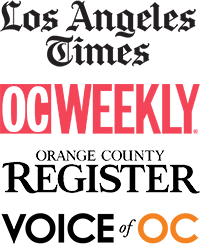
JAMES M. CRAWFORD
Criminal Defense & Appeals Attorney
Ratings


Memberships


Media Coverage


My Latest Blog Posts
Recent blog posts appear below. You can also read about my FEATURED VERDICTS or see MEDIA COVERAGE of my cases too.
Law Change: SB 483 invalidates certain enhancements and priors
SB 483 is a bill that provides retroactive relief and is time-sensitive. It declares that certain enhancements and priors imposed before recent changes in the law to be legally invalid. This means that individuals who have been sentenced with these enhancements in the past can now have their sentences reevaluated and potentially reduced.
Law Change: Updates to California’s determinate sentencing laws
Recent changes to California’s Determinate Sentencing Law include requiring judges to acknowledge various types of trauma when selecting a sentence, creating new affirmative defenses for victims of human trafficking, intimate partner violence, and sexual abuse, and creating a post-conviction procedure for resentencing based on trauma.
Law Change: AB 1228 and violations of supervision
AB 1228 changes the rules for releasing people who are being supervised by the criminal justice system (probation, MS, PRCS, parole) and have been arrested for suspected violations of their supervision. The new law requires the court to release these individuals on their own recognizance (O.R.) pending a revocation hearing, unless the court finds clear and convincing evidence that conditions of release are necessary to protect the public or ensure the person’s appearance in court.
Law Change: SB 81 expands use of mitigating circumstances
SB 81 is a new law that changes how enhancements are handled in criminal cases. Enhancements are additional punishments that can be added to a sentence based on specific circumstances, such as the use of a weapon or the commission of a crime while on probation.
Law Change: AB 518 reduces possible imprisonment time
AB 518 is a new law that changes how punishments are determined for crimes that can be punished under multiple laws. Under the previous law, if someone committed a crime that could be punished under multiple laws, they could only be sentenced for the longest possible term of imprisonment.
Law Change: AB 333 changes how gang enhancements are used
AB 333 is a new law that changes how gang enhancements are used in criminal cases. It removes looting, vandalism, and identity theft from the list of crimes that can be used to prove a pattern of criminal gang activity. This means that just because someone commits one of these crimes, it does not automatically mean they are part of a gang.
Law Change: California Senate Bill 775 expands criminal defense rights
California SB 775 is a new law that clarifies the rights of those convicted of certain crimes. If you were convicted of attempted murder or manslaughter under the felony murder or natural and probable consequences theory, you can now get the same relief as those convicted of murder under the same theories. This means you may be able to have your sentence reduced or even get released from prison.
Understanding Your Miranda Rights: Why You Should Always Exercise Your Right to Remain Silent and Speak to an Attorney
Miranda rights are crucial in the criminal justice system, and it’s important to understand them if you’re ever arrested. These rights were established in the landmark Supreme Court case Miranda v. Arizona, which determined that law enforcement officers must inform suspects of their rights before they can be questioned in police custody.
Understanding Criminal Procedure: An Overview of the Criminal Justice System
The criminal justice system can be a confusing and overwhelming process, especially if you’re facing criminal charges. Understanding the basic components of criminal procedure can help you navigate the legal system and protect your rights. Read more to get an overview of criminal procedure, including pre-trial proceedings and trial procedure.
What to Do if You’re Arrested: Steps to Take to Protect Your Rights
Being arrested can be a scary and overwhelming experience. However, it’s important to stay calm and take the right steps to protect your rights. Read more to learn some important things to keep in mind if you’re ever arrested.

